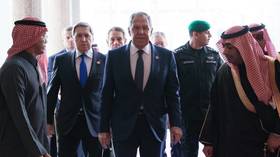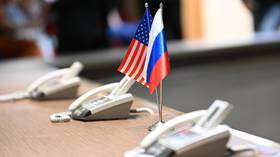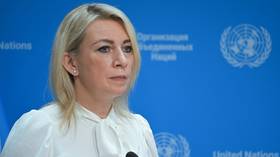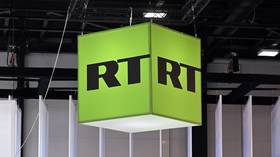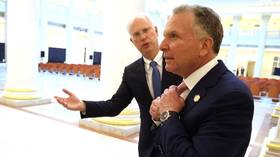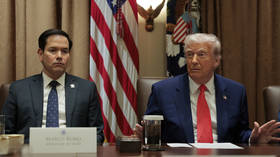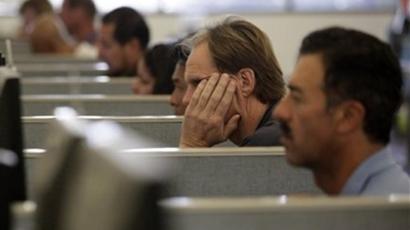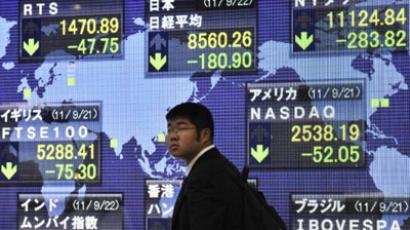IMF: hypocrisy must end
The IMF has warned it may not be able to rescue bigger European economies struggling with their debt. Meanwhile, the body is accused of being too tough on some countries while being too soft on others, like the US, where the 2008 crisis began.
While the leadership in the organization has changed, its methods remain the same.For a desperate economy, the IMF still offers the same bitter medicine of draconian budget belt-tightening. Debt-stricken Greece is pushed to redouble its austerity efforts at a time of deep economic recession and to sell a vast chunk of public assets at fire-sale prices. The IMF's former head Dominique Strauss-Kahn said that forcing Greece to pay back its debts would unacceptably impoverish the country and that everyone must be willing to accept losses on Greek debt.But philanthropy has never been the IMF's strong point. “It’s an institution where my main shareholder is the United States of America. While any dollar, any euro invested in that fund goes back to the member. Principal and interest – we are not in the business of subsidies, we’re not in the business of giving grants,” said current IMF chief Christine Lagarde.The US and Europe are holding the most votes in the organization and veto power, despite the fact that emerging economies have been the engine of global growth in recent years. The organization’s policy-making has been under fire for being biased in favor of its top shareholders.One of the functions of the IMF is crisis warning and prevention. But when, three years ago, the financial crisis in the US was sending devastating shockwaves throughout the world, the organization proved completely ineffectual.“In the case of the United States, the IMF should have taken a much stronger position warning about the buildup of financial excess in the private economy, dangerous collateralized debt obligations, the housing bubble. They completely dropped the ball on them. And unless the IMF is enabled to monitor the rich and powerful countries like the United States, as well as other counties, it will probably lose its credibility,” according to Gerald Epstein, co-director and professor at the Department of Economics of the University of Massachusetts.Some experts see the intimacy between the IMF and US corporations as a matter of concern.“All of the big decisions at the IMF are made by the US Treasury Department,” underlines Ian Vasquez from CATO Institute.Even the head of the World Bank has accused the top advanced economies of hypocrisy in their policies.“When countries with large fiscal deficits preach fiscal discipline to poor countries what are they really saying? ‘Do what I say, not what I do.’ When countries pay homage to free trade, but hold back developing countries with barriers, what are they really saying? ‘Do what I say, not what I do.’ A ‘do what I say, not what I do’ world will fracture to the detriment of all. The old ways can and must change,” said Robert Zoellick, president of the World BankWith the IMF's wealthiest members themselves now facing their own debt problems, many doubt whether the organization will be able to take adequate measures to ward off another global crisis. As for lending money to the world’s weaker economies, the IMF is still facing the challenge of offering viable solutions that do not come with crippling measures.But one thing is clear: the world demands an IMF that does not work solely for the benefit of the few.




